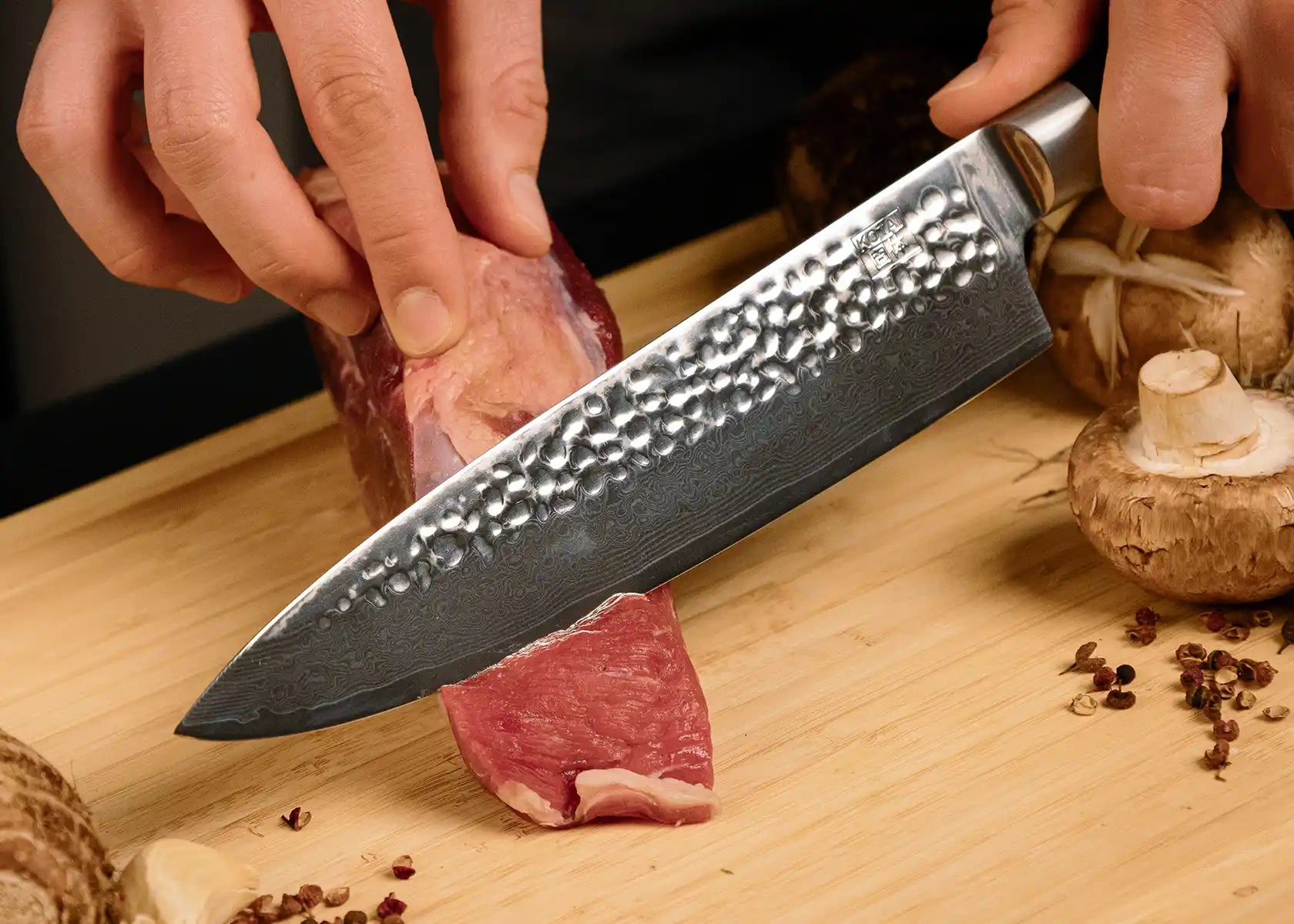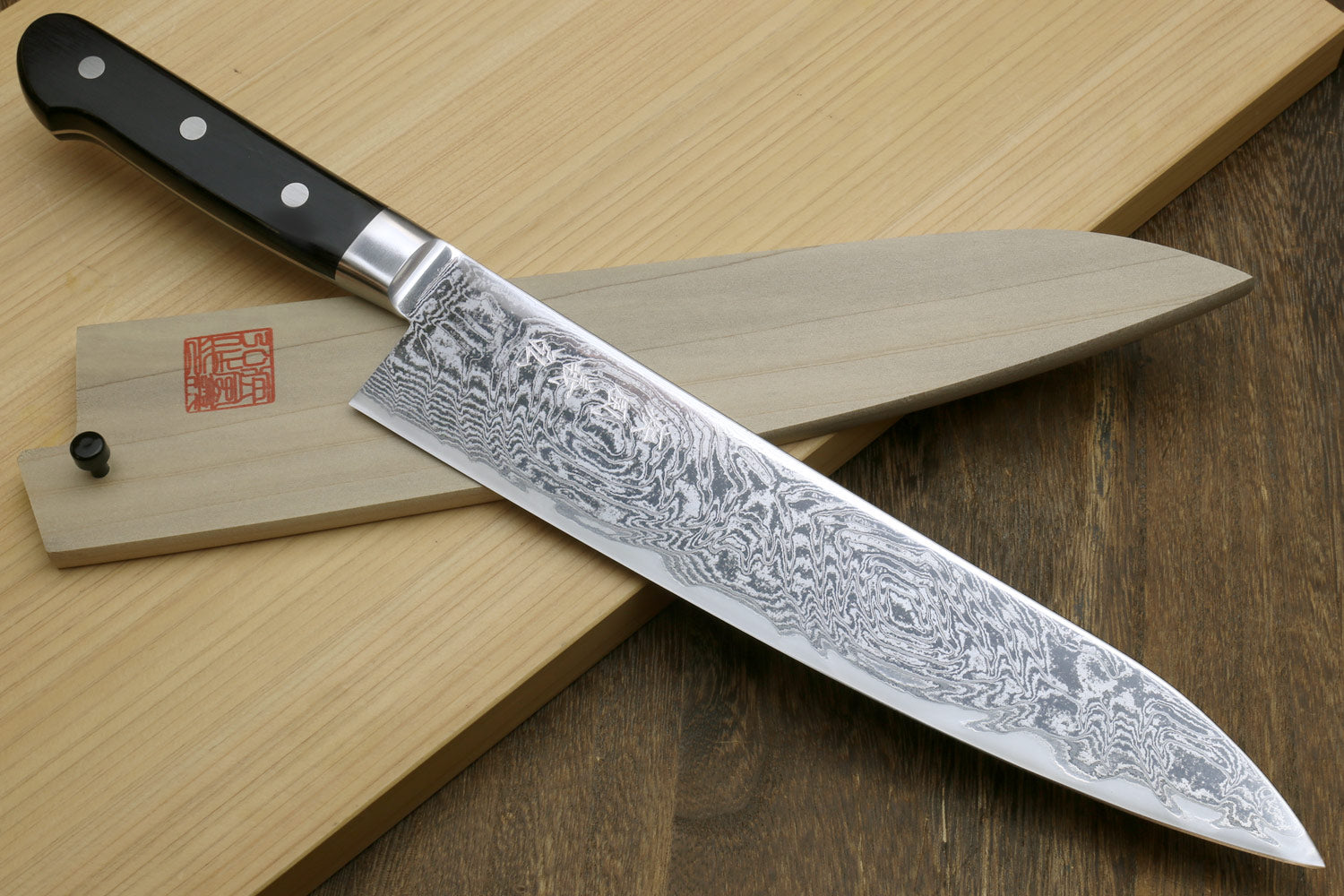In the realm of professional kitchens, the choice of a knife can significantly impact the outcome of culinary creations. Among the many types of knives available, the heat treated Damascus steel knife stands out with its combination of beauty and precision. This article explores the intricacies of this remarkable tool and delves into why kitchen professionals hold it in high regard.

The Legacy of Damascus Steel
To understand the allure of a heat treated Damascus steel knife, it's essential to delve into the legacy of Damascus steel. Originating from the Near East, this legendary material has been revered for its strength and unique wavy patterns, which are a result of a meticulous forging process. Today, modern techniques have refined these age-old methods, allowing artisans to produce knives that are not only functional but also visually stunning.
The Heat Treatment Process
The heat treatment process is a critical step in enhancing the qualities of a Damascus steel knife. By carefully controlling the temperature and time of heating and cooling, the steel's crystalline structure is altered, resulting in improved hardness and durability. This process ensures that the blade maintains a sharp edge while being resilient to wear and tear. For the discerning kitchen professional, this means a tool that can withstand the rigors of daily use without compromising performance.
The Art of Crafting
Crafting a heat treated Damascus steel knife is both an art and a science. The process begins with layering different types of steel and then forging them together to create distinctive patterns. Each blade is unique, and the patterns can range from swirls to waves, adding an artistic element to the knife's functionality. [Chef tested Damascus knives](https://knives.shop/blogs/my-blog/chef-tested-damascus-knives) exemplify this craftsmanship with their exceptional quality and aesthetic appeal.
Why Professionals Choose Damascus
For kitchen professionals, the edge retention of a heat treated Damascus steel knife is a significant advantage. The combination of hard and soft steel layers contributes to a blade that can be honed to an incredibly sharp edge, perfect for precise cuts. Whether it's chopping herbs or slicing meat, these knives provide a level of accuracy and control that professionals demand.
In addition to performance, the aesthetic appeal of Damascus knives cannot be understated. A [Damascus knife with Micarta handle](https://knives.shop/blogs/my-blog/damascus-knife-with-micarta-handle) offers not only a firm grip but also an elegant look that complements any kitchen setting.
Maintaining Your Knife
The longevity of a heat treated Damascus steel knife depends significantly on its maintenance. Regular honing and proper storage help maintain the knife's edge and prevent rust. Professionals often prefer magnetic strips or specialized knife blocks to keep their blades in pristine condition. For more tips on knife maintenance, consider exploring [How to carry a fixed blade knife](https://knives.shop/blogs/my-blog/how-to-carry-a-fixed-blade-knife).

Conclusion
A heat treated Damascus steel knife is more than just a tool for kitchen professionals; it is an extension of their skill and creativity. The blend of historical craftsmanship and modern technology ensures these knives offer unmatched precision and elegance.
Whether you're a professional chef or a passionate home cook, investing in a Damascus steel knife can elevate your culinary experience. For more information on the fascinating history and craftsmanship of Damascus steel, visit Medieval Ware.
Frequently Asked Questions
What makes Damascus steel unique?
The uniqueness of Damascus steel lies in its distinctive patterns and superior strength, owing to the blend of different types of steel and a specific forging technique.
How often should I sharpen my Damascus steel knife?
For optimal performance, it's advisable to hone your Damascus steel knife regularly, with sharpening depending on the frequency of use.
Can beginners handle Damascus knives?
While Damascus knives are favored by professionals, they can also be used by beginners who appreciate precision tools; however, proper handling and care are essential.
This article contains affiliate links. We may earn a commission at no extra cost to you.


























